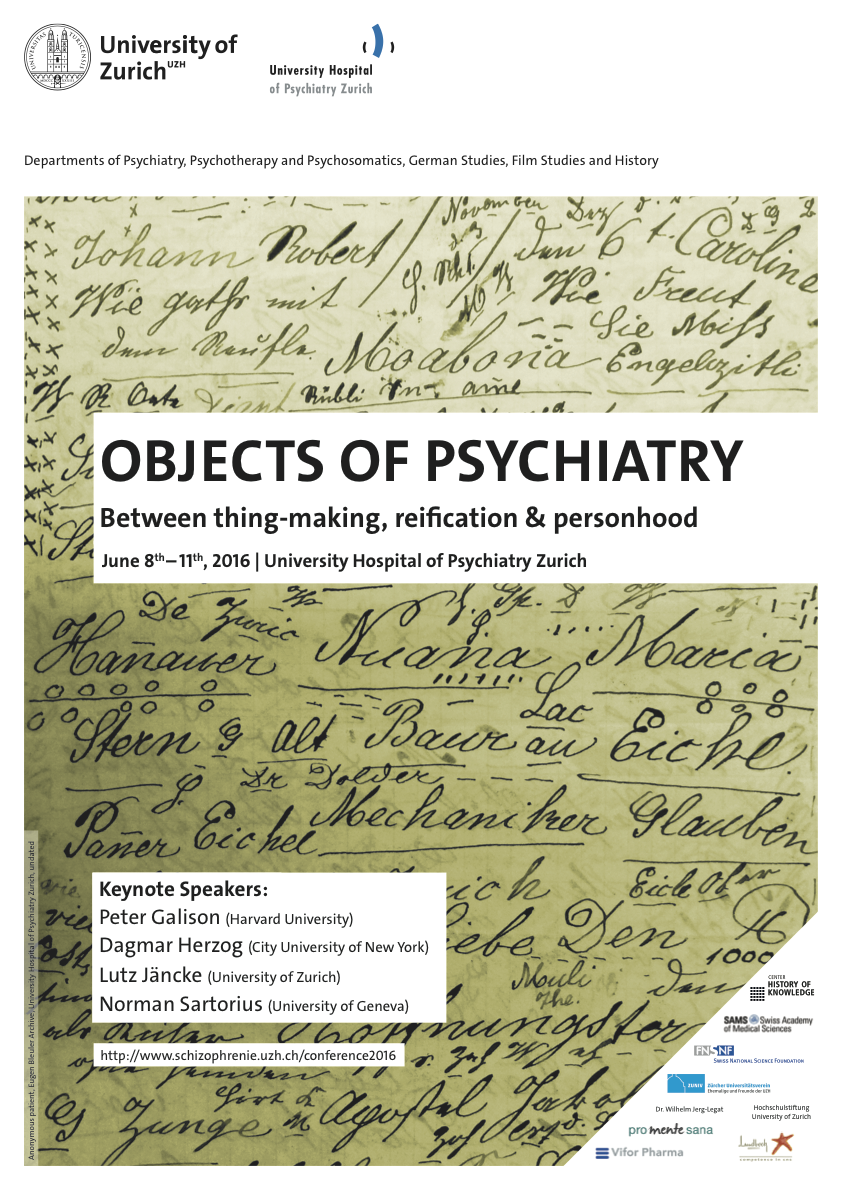OBJECTS OF PSYCHIATRY: Between thing-making, reification & personhood
International Conference: Zurich, June 8 – 11, 2016
Programme & book of abstracts:
Conference programme (PDF, 1 MB)
Venue: The conference takes place at the University Hospital of Psychiatry Zurich, Lenggstr. 31, 8032 Zurich, Rooms Z0 03 & Z1 03.
Maps:
How to get there (PDF, 50 KB)
University Hospital of Psychiatry (JPG, 423 KB)
Psychiatry is situated at the interface between the natural sciences, the social sciences and the humanities. The ensuing hybrid nature invites inter- and transdisciplinary research approaches. This conference aims to give a platform to such approaches asking the central question: Who or what is, becomes or constitutes psychiatry’s object?
Taking its starting point from the study of concrete research objects – case notes, images, films and texts, diagnostic concepts and labels, research instruments and therapeutic procedures, doctors and patients – it invites reflection on how objects are related to subjects, selves and personhood. Can this relationship be conceptualized along the lines of the traditional Western dichotomy between object and subject or does it have to be fundamentally re-thought? And is it linked to other classical dichotomies e.g. the one between matter and meaning? Is there a role for agents as object-, subject-, self- or thing-makers?
OBJECTS OF PSYCHIATRY takes up current debates within psychiatry namely the debate about the reification of psychiatric diagnoses like “schizophrenia”, but also deliberations about autonomy, human rights and participation. At the same time, it considers how the humanities situate psychiatric objects in wider societal contexts and discourses and bring into focus their historical genesis and configuration.
Drawing together heterogeneous traditions of thought and methods, it invites participants to build – and to reflect on – transdisciplinary bridges between sciences and humanities as well as between theory and practice. Contributions are invited, but not limited to, perspectives from psychiatry, philosophy, psychology, linguistics, history, history of science and medicine, neurosciences, as well as cultural, literary, film & visual studies. Medical Humanities approaches are welcome.
